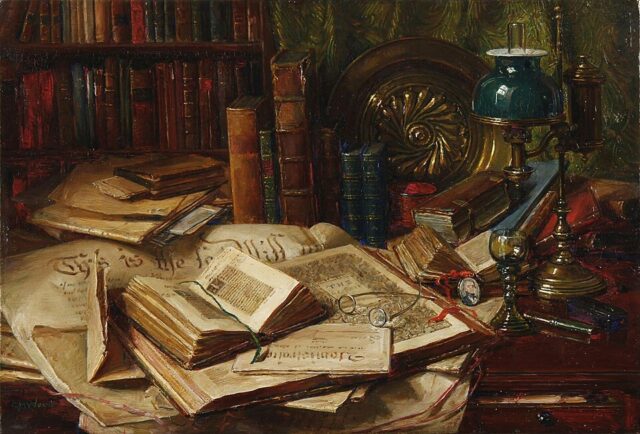Dear friends and members of our church —
I hope this message finds you well, in good health and spirits. In my message last Sunday about Pentecost, and “tongues of fire,” I talked about the din and loud turmoil of our current moment, its crises, conflicts, and polarizations (that message has been put on YouTube here). It can be challenging to clearly speak a Christian message about love and forgiveness—the “Gospel,” or good news–when our attention gets entangled in the emotional intensity of what is presently unfolding; a scale of suffering which can be overwhelming to fathom. I suggested towards the end of my message that one thing which might help us amidst this babble is poetry — to hold onto spaces of language which cause us to slow down, deliberate, and reflect. Whether it is the sacred poetry we find in the Bible, or any words written closer to our moment and time, I wonder if you have found a line or lines to keep in your head, that might provide a bulwark.
My grandfather on my dad’s side served in World War II, working on cargo planes in battle zones across Europe. I can remember as a child being moved when my father told me that Grandpa had memorized Psalm 23, “The Lord is my Shepherd,” to keep close at hand during moments of danger. Whenever I hear these familiar lines today, I think of my grandpa, the ways these words gave him solace and protection during one of the darkest moments of the twentieth century. Do you have a poem, a line, or a moment from sacred scriptures or other kind of writing that was significant for one of your ancestors (whether by birth or chosen)? If we read and listen with full attention, sometimes these words can be more than recitation: they can powerfully return those who have loved us, and helped us get to this moment, where we are. At this critical juncture in our culture and history, we stand not alone; in a very real way, the ancestors are all at our backs, with us in our hearts and minds. They are the good angelic spirits that Swedenborg writes about, who are omnipresent as a force within the heart of every person.
As I shared in my message, my maternal grandmother—a remarkable woman who we call called “Nini”—sent me a magazine of poetry which responded to the crisis of 9/11, which I experienced firsthand as a New Yorker. It was in those pages that I first encountered a poem by the Irish writer Seamus Heaney, “The Cure at Troy.” Shaped in part by Heaney’s own experience of the bitter violence if the “Troubles” in Northern Ireland, it beautifully articulates a hope for a future, “on the far side of revenge”:
History says, Don’t hope
On this side of the grave…
But then, once in a lifetime
The longed-for tidal wave
Of justice can rise up,
And hope and history rhyme.
Amidst what can feel like a hopeless endarkening at present, may we all strive to “make hope and history rhyme,” and recall the joy and love which lies at the heart of our tradition.
Happy Pride, happy Juneteenth,
Rev. Dr. Devin Zuber

